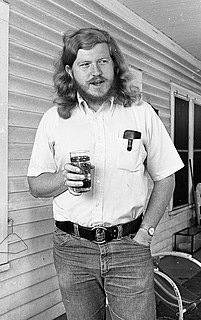A Quote by Harold B. Lee
In order for good to blossom it must be cultivated and exercised by constant practice, and to be truly righteous there is required a daily pruning of the evil growth of our characters by a daily repen- tance from sin.
Related Quotes
Many of us incorrectly assume that a spiritual life begins when we change what we normally do in our daily life. We feel we must change our job, our living situation, our relationship, our address, our diet, or our clothes before we can truly begin a spiritual practice. And yet it is not the act but the awareness, the vitality, and the kindness we bring to our work that allows it to become sacred.
Virtue is the panacea for both body and mind. The virtuous person can be both healthy and happy. How is virtue to be cultivated? How can it express itself in daily practice? Through service to living beings, through seva. Virtue must flow through the triple channel of love, mercy and detachment, in order to feed the roots of seva.
In Buddhism, both learning and practice are extremely important, and they must go hand in hand. Without knowledge, just to rely on faith, faith, and more faith is good but not sufficient. So the intellectual part must definitely be present. At the same time, strictly intellectual development without faith and practice, is also of no use. It is necessary to combine knowledge born from study with sincere practice in our daily lives. These two must go together.
We should be able to bring the practice of meditation hall into our daily lives. We need to discuss among ourselves how to do it. Do you practice breathing between phone calls? Do you practice smiling while cutting carrots? Do you practice relaxation after hard hours of work? These are practical questions. If you know how to apply meditation to dinner time, leisure time, sleeping time, it will penetrate your daily life, and it will also have a tremendous effect on social concerns.
We cannot escape from our daily routine, because it will go with us wherever we go.... God must be sought and found in the things of our world. By regarding our daily duties as something performed for the honour and glory of God, we can convert what was hitherto soul-killing monotony, to a living worship of God in all our actions. Everyday life must become itself our prayer.
Our inhuman enemy inspires the thought that God loves mankind, and that He quickly forgives this sin. But when we observe the guile of demons, then we see that after the commission of the sin, they suggest to us that God is a righteous and implacable Judge. The first they say in order to lead us to sin, the second, in order to weigh us down in despair.
We forget that every good that is worth possessing must be paid for in strokes of daily effort. We postpone and postpone until those smiling possibilities are dead... By neglecting the necessary concrete labor, by sparing ourselves the little daily tax, we are positively digging the graves of our higher possibilities.
The most important thing is practice in daily life; then you can
know gradually the true value of religion. Doctrine is not meant for
mere knowledge, but for the improvement of our minds. In order to do
that, it must be part of our life. If you put religious doctrine in
a building and when you leave the building depart from the practices,
you cannot gain its value.
To be free people we must assume total responsibility for ourselves, but in doing so must possess the capacity to reject responsibility that is not truly ours. To be organized and efficient, to live wisely, we must daily delay gratification and keep an eye on the future; yet to live joyously we must also possess the capacity, when it is not destructive, to live in the present and act spontaneously. In other words, discipline itself must be disciplined. The type of discipline required to discipline discipline is what I call balancing.





































